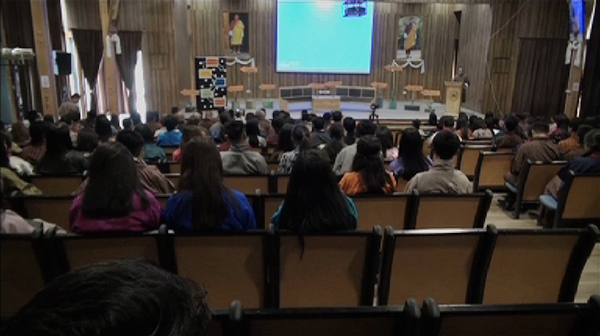 Life skills education has helped in promoting positive behaviour over the use of corporal punishment, verbal abuse and suspension as a discipline technique in schools.
Life skills education has helped in promoting positive behaviour over the use of corporal punishment, verbal abuse and suspension as a discipline technique in schools.
This is as per one of the findings of an action report carried out in fifteen schools on different themes in 2016. Life skills allow students to apply the knowledge they acquire in school to real-world problems and situations.
Phub Dorji a lecturer with Gedu College of Business Studies carried out the research on the theme of life skills education as a positive disciplining intervention for students with disciplinary issues at Sherubling Central School in Trongsa. The research found out that the use of corporal punishment, verbal abuse and suspension as disciplining techniques have a negative impact on students. As per the finding introduction of life skills education have helped in teaching youth to become responsible, respectful and resourceful members of the communities. Life skills education is found effective in developing self-awareness, decision-making skills, managing emotions and strengthening relationships.
” Although life skills education is playing a crucial role in shaping and changing the student’s behaviour, we have the problem of time. In schools, we do not get enough time to practice life skills,” Phub Dorji, a lecturer for Gedu College of Business Studies said.
More than one hundred students took part in the survey and ten students with the disciplinary issues reported to the school discipline committee were also part of the research. The ten students were chosen to examine the effects of life skills education as a positive disciplining intervention and rest of the students to check their perception of life skills education as a means to combat disciplinary issues in the schools. The finding reveals that life skills education has the highest level of positive impact while corporal punishment as a disciplining technique has a negative impact on students development.
“I was caught by the teacher for getting involved in a gang fight. the problem reached to the school discipline committee. I and my friends were canned by the teachers. To be honest, nothing has changed for positive in me after the punishment. Instead of helping me refrain from getting involved in fights, the punishment was more of defamation and insult. This led me to develop grudge with the friend I fought and hatred for the teacher who punished me,” Interviewee B reported.
“I think corporal punishment is just a short term remedy because as soon as I overcome the pain, I get back to my old habits. In addition, I start hating the teacher who punishes me. I lose faith and respect for that teacher. As a result. I do not enjoy that teacher’s teaching and the subject,” Interviewee I said.
“I was slapped on my face for substance abuse. I think I fell prey to peer pressure. We were caught and the problem was reported to the discipline committee. I felt very afraid during the interrogation. Now I fear to make friends and I have lost confidence too. I even planned to quit schooling.” Interviewee H’s excerpt.
The study recommended to train and support teachers in non-violent or positive methods of disciplining to create safe and supportive school environment. It also recommends educators be trained in life skills, and enough time must be allocated for the life skills education classes to understand and address learners’ need and problems.












